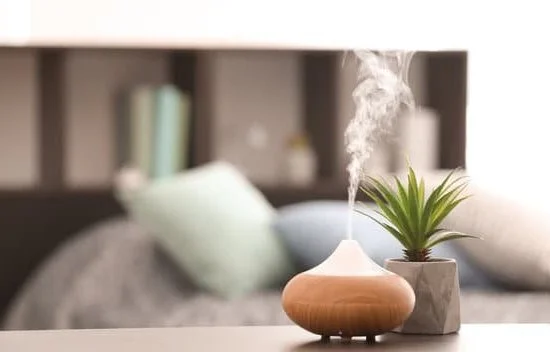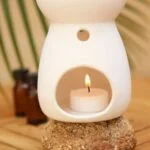Are you interested in pursuing a career or hobby in aromatherapy? If so, you may be wondering how to study aromatherapy and where to begin. Aromatherapy is the practice of using natural plant extracts, known as essential oils, to promote physical and psychological well-being. In this article, we will explore the various ways you can immerse yourself in the study of aromatherapy, from understanding the basics to exploring career opportunities.
Aromatherapy has been used for centuries as a holistic treatment for various ailments and conditions. The benefits of aromatherapy include stress relief, relaxation, improved mood, mental clarity, and even physical healing. Each essential oil offers its own unique properties and therapeutic effects that can be harnessed through careful study and application. Understanding the fundamentals of aromatherapy is key to harnessing its potential and reaping its benefits.
When it comes to studying aromatherapy, there are numerous paths you can take. From formal education programs to self-study with online resources, there are various options available to suit individual preferences and goals. Whether you are interested in becoming a certified aromatherapist or simply want to expand your knowledge for personal use, it’s important to consider the different avenues for studying aromatherapy before diving into your learning journey.
Understanding the Basics of Aromatherapy
When studying aromatherapy, it’s essential to have a solid understanding of the basics, including essential oils, carrier oils, and their uses. Essential oils are highly concentrated plant extracts that retain the natural smell and flavor of their source. These oils are often used in aromatherapy to promote physical and psychological well-being.
Carrier oils, on the other hand, are used to dilute essential oils before applying them to the skin. These base oils help “carry” the essential oil onto the skin and aid in its absorption.
Here are some essential oils commonly used in aromatherapy, along with their benefits:
- Lavender: Known for its calming and relaxing properties
- Peppermint: Useful for alleviating headaches and nausea
- Eucalyptus: Often used for respiratory issues and congestion
- Tea Tree: Recognized for its antibacterial and antiseptic qualities
It’s important to note that each essential oil has its own unique properties and potential benefits. Understanding the properties of different essential oils can help you create effective blends for various purposes. For example, combining lavender with a carrier oil like jojoba oil can create a soothing massage oil, while blending peppermint with coconut oil can be used as a cooling body lotion after sun exposure.
When learning about carrier oils, it’s crucial to understand their individual qualities as well. Some popular carrier oils include jojoba oil, sweet almond oil, coconut oil, and olive oil.
Each carrier oil has specific characteristics that make it suitable for different skin types and purposes in aromatherapy. For instance, jojoba oil is known for its long shelf life and is suitable for all skin types, while sweet almond oil is ideal for sensitive or dry skin due to its hydrating properties.
Learning about these fundamental aspects of aromatherapy will provide a solid foundation for further study in this field.
Choosing the Right Aromatherapy Program
When it comes to studying aromatherapy, choosing the right program is crucial for your success in this field. There are several factors to consider before enrolling in an aromatherapy program to ensure that it meets your needs and goals.
Educational Requirements and Accreditation
Before choosing an aromatherapy program, it’s essential to check the educational requirements and accreditation. Look for programs that are accredited by reputable organizations such as the National Association for Holistic Aromatherapy (NAHA) or Alliance of International Aromatherapists (AIA). Accredited programs ensure that you receive a high-quality education and training in aromatherapy.
Curriculum and Course Offerings
Consider the curriculum and course offerings of the aromatherapy program. A comprehensive curriculum should cover topics such as essential oils, blending techniques, anatomy and physiology, safety guidelines, and practical application of aromatherapy. Look for programs that offer a diverse range of courses to provide you with a well-rounded education in this field.
Practicum Opportunities and Hands-on Experience
Hands-on experience is essential when studying aromatherapy. Look for programs that offer practicum opportunities, internships, or workshops where you can gain practical experience in working with essential oils and providing aromatherapy treatments. Practical application is key to mastering the art of aromatherapy, so be sure to choose a program that offers hands-on experience.
Considering these factors before enrolling in an aromatherapy program will help you make an informed decision and set you on the path towards a successful career in this field. Understanding the educational requirements, accreditation, curriculum offerings, and hands-on opportunities will ensure that you select the right program that aligns with your interests and career goals while also helping you learn how to study aromatherapy effectively.
DIY Aromatherapy
Aromatherapy offers a wide range of benefits for physical, emotional, and mental well-being. One of the most rewarding aspects of studying aromatherapy is the opportunity to create your own blends and recipes. Whether you’re looking to relieve stress, boost energy, or improve sleep quality, customizing your own aromatherapy products allows you to tailor your experience to your specific needs.
When creating your own blends and recipes, it’s important to have a good understanding of essential oils and their properties. Essential oils are highly concentrated plant extracts that can be used individually or blended together to achieve different therapeutic effects. Some popular essential oils include lavender for relaxation, peppermint for energy, and eucalyptus for respiratory support. It’s also important to consider carrier oils, which are used to dilute essential oils before applying them to the skin.
To get started with DIY aromatherapy, here are some basic steps to follow:
1. Research: Learn about different essential oils and their uses. Understand their properties and potential benefits.
2. Experiment: Start by blending small amounts of essential oils with carrier oils to create simple recipes such as massage oils or bath salts.
3. Safety: Always use proper dilution ratios and perform a patch test before applying any new blend to your skin.
4. Record Keeping: Keep track of your recipes and their effects so you can replicate successful blends in the future.
Once you have mastered basic blends, you can start getting creative by experimenting with different combinations of essential oils and carrier oils to create unique products that cater specifically to your needs or the needs of others. With practice and experimentation, you will develop the skills needed to become proficient in creating your own personalized aromatherapy blends and recipes.
Overall, DIY aromatherapy allows you not only to reap the numerous benefits of using essential oils but also gives you the freedom to explore different scents and combinations that can enhance your physical health as well as uplift your emotional wellbeing.
The Science Behind Aromatherapy
Aromatherapy is a holistic healing treatment that uses natural plant extracts to promote physical and mental wellbeing. The use of essential oils and other aromatic compounds can have a powerful impact on the body and mind, making it a popular alternative therapy for many individuals. But how exactly does aromatherapy work, and what are its effects on the body and mind?
Understanding the Mechanism of Action
Essential oils used in aromatherapy are believed to stimulate smell receptors in the nose, which then send messages through the nervous system to the limbic system – the part of the brain that controls emotions and memories. This is why certain scents can trigger specific emotional responses or memories. In addition, some essential oils have antimicrobial properties and can be absorbed through the skin, entering the bloodstream to provide therapeutic benefits.
The Effects on the Body and Mind
Aromatherapy has been shown to have various physiological effects on the body, including reducing stress, anxiety, and depression, improving sleep quality, easing muscle pain, and boosting immunity. Mentally, aromatherapy can help improve mood, enhance cognitive function, and promote relaxation. When used in conjunction with other therapies or as part of a self-care routine, aromatherapy has the potential to contribute positively to an individual’s overall health and wellness.
Studying Aromatherapy’s Impact
If you are interested in learning more about how aromatherapy works and its effects on the body and mind, consider enrolling in a reputable aromatherapy program. These programs often cover topics such as the science behind essential oils, their therapeutic properties, application methods for different conditions or concerns.
By gaining a deeper understanding of how aromatherapy interacts with our bodies at a molecular level, you will be better equipped to utilize this knowledge when creating your own blends or recommending treatments for others.
Studying Aromatherapy Online
When it comes to learning about aromatherapy, there are various options available, including online courses. These courses offer the flexibility of studying from the comfort of your own home and at your own pace. However, there are both pros and cons to consider before enrolling in an online aromatherapy program.
One of the main advantages of studying aromatherapy online is the convenience it offers. You have the freedom to access course materials and lectures at any time that suits you, allowing you to balance your studies with other commitments such as work or family. Additionally, online courses often provide a wide range of resources including videos, e-books, and webinars, which can enhance your learning experience.
On the other hand, one potential drawback of online aromatherapy courses is the lack of hands-on experience. Aromatherapy involves practical skills such as blending essential oils and creating customized products. While some online programs may offer practical workshops or internships as part of their curriculum, it can still be challenging to develop these skills without face-to-face instruction. Moreover, without direct supervision, there may be limitations in receiving feedback on your techniques.
In summary, studying aromatherapy online has its advantages in terms of flexibility and accessibility to resources. However, it’s important to carefully weigh these benefits against potential drawbacks such as limited practical experience and supervision before making a decision on whether online courses are the right fit for your aromatherapy studies.
| Advantages | Disadvantages |
|---|---|
| Flexibility in scheduling | Limited hands-on experience |
| Access to various resources | Lack of direct supervision and feedback |
Practical Application of Aromatherapy
Once you have gained a solid understanding of the basics of aromatherapy and completed your studies, it’s time to put your knowledge into practice. Practical application is a crucial aspect of becoming proficient in aromatherapy, and there are several ways to gain hands-on experience in this field.
One option is to seek out internships with established aromatherapists or wellness centers. This will allow you to observe professionals in action, learn from their expertise, and apply what you have learned in a real-world setting.
Another valuable way to gain practical experience is by participating in workshops and seminars conducted by experienced aromatherapists. These events often provide opportunities for attendees to engage in hands-on activities such as creating essential oil blends, conducting aroma assessments, and practicing various techniques under the guidance of experts. Workshops can be highly beneficial for honing your skills and expanding your knowledge base.
In addition to internships and workshops, consider seeking out volunteer opportunities at wellness centers, spas, or holistic health clinics that offer aromatherapy services. This will allow you to work directly with clients under supervision and further develop your skills. In some cases, these experiences can also lead to employment opportunities or valuable networking connections within the industry.
| Practical Application Methods | Benefits |
|---|---|
| Internships with established practitioners | Observational learning and real-world application |
| Workshops and seminars | Hands-on activities under expert guidance |
| Volunteer opportunities at wellness centers | Direct client interaction and potential career connections |
Career Opportunities in Aromatherapy
Once you have completed your studies in aromatherapy, a world of career opportunities awaits. Aromatherapy is a growing industry with a demand for qualified professionals in various fields. With the right credentials and experience, you can explore a range of rewarding career paths.
One potential career path in aromatherapy is working as an aromatherapist in a spa or wellness center. As an aromatherapist, you would provide personalized essential oil treatments and consultations to clients to help improve their physical and emotional well-being. This role often involves creating custom essential oil blends based on individual needs and preferences.
Another career opportunity in aromatherapy is becoming a product formulator or developer. In this role, you would use your knowledge of essential oils and their therapeutic properties to create skincare, haircare, and personal care products. This could involve working for established beauty brands or starting your own line of aromatherapy-based products.
For those interested in the scientific aspect of aromatherapy, pursuing a career as a research scientist or educator may be the ideal path. Research scientists study the effects of essential oils on the body and mind, contributing to the growing body of evidence supporting the benefits of aromatherapy. Educators, on the other hand, can teach aromatherapy courses at colleges or specialized institutions, sharing their expertise with aspiring students.
No matter which career path you choose to pursue in aromatherapy, it’s important to stay updated with the latest trends and developments in the field. Continuing education through workshops, seminars, and advanced certifications can further enhance your expertise and open doors to new opportunities. With dedication and passion for aromatherapy, your studies can take you far in this fulfilling industry.
By understanding what different armoa therapies are-and how they might benefit you-you can take full advantage of them while avoiding dangerous substances that promise quick healing without delivering any real health benefits “aroma therapy”.
Tips for Success in Studying Aromatherapy
In conclusion, studying aromatherapy can be an enriching and fulfilling experience for those who have a passion for holistic health and wellness. By understanding the basics of aromatherapy, choosing the right program, and delving into the science behind it, individuals can gain a comprehensive knowledge of this ancient practice. Whether pursuing online courses or seeking practical application through internships and workshops, there are numerous opportunities to learn and grow in this field.
To succeed in studying aromatherapy, it is important to have effective study strategies in place. This may include creating a dedicated study space, staying organized with notes and resources, and actively engaging in hands-on experiences. Utilizing reliable resources such as reputable books, articles, and peer-reviewed journals can also enhance one’s learning experience. Additionally, seeking mentorship from experienced practitioners or instructors can provide valuable guidance along the way.
Ultimately, embarking on a journey to study aromatherapy opens doors to various career opportunities in wellness centers, spas, healthcare facilities, and even entrepreneurship. With dedication, perseverance, and a genuine interest in holistic health practices, individuals can find success in this growing field. As with any area of study, staying committed to continuous learning and keeping an open mind will contribute to personal and professional growth in the world of aromatherapy.
Frequently Asked Questions
What Qualifications Do You Need to Practice Aromatherapy?
To practice aromatherapy, it is recommended to have a certification from an accredited aromatherapy school or an educational program. Additionally, having a good understanding of essential oils, their properties, and contraindications is vital.
How Long Does It Take to Study Aromatherapy?
The length of time it takes to study aromatherapy can vary depending on the program and its intensity. Generally, completing a basic certification program can take anywhere from a few months to a year, while more in-depth training may span over several years.
How Can I Learn About Aromatherapy?
There are various ways to learn about aromatherapy. One option is enrolling in a reputable aromatherapy school or educational program either online or in-person. Additionally, there are many books, websites, and workshops available for self-study and learning about the practice of aromatherapy.

Are you looking for a natural way to improve your health and wellbeing?
If so, aromatherapy may be the answer for you.




